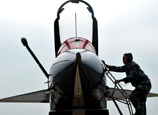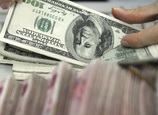
Speaking at a news conference on Tuesday, Hong Lei, Foreign Ministry spokesman, said China is happy with the EU's decision to suspend its unilateral measures.
"China always maintains that... it will continue to work with all of the parties involved to deal with climate change using a multilateral mechanism such as the UN Framework Convention on Climate Change and the International Civil Aviation Organization," he said.
The aviation organization said on Friday it will look for ways to encourage the use of market-based mechanisms to reduce carbon emissions. It suggested adopting a carbon-trading system but has yet to say it intends to put one into effect.
The EU's decision to freeze its emissions rule will not apply to EU airlines. Only international flights will be exempt from paying for their carbon releases during the year-long suspension period.
The original rule would have allowed the EU to impose emission charges on international airlines that use EU airports from Jan 1 onwards. The airlines' first payment under the system was to come due in April 2013.
Estimates suggest that complying would have initially cost China's aviation industry about 800 million yuan ($126 million) a year and as much as 18 billion yuan a year by 2030.
Hedegaard called on the aviation organization to propose an alternative way of controlling airline emissions. Otherwise, she said, the EU will revert to its original plan.
"But let me be very clear: If this exercise does not deliver - and I hope it does - then, needless to say, we are back to where we are today with the EU emissions trading system, automatically," Hedegaard was quoted as saying by Reuters.


















 Underground voices:grassroots singer in subway
Underground voices:grassroots singer in subway


![]()
